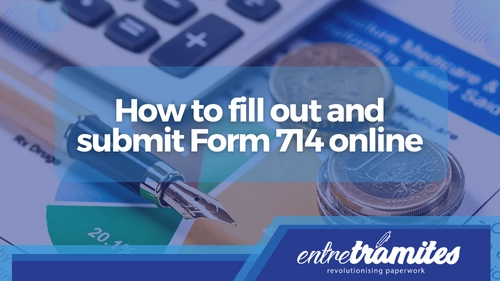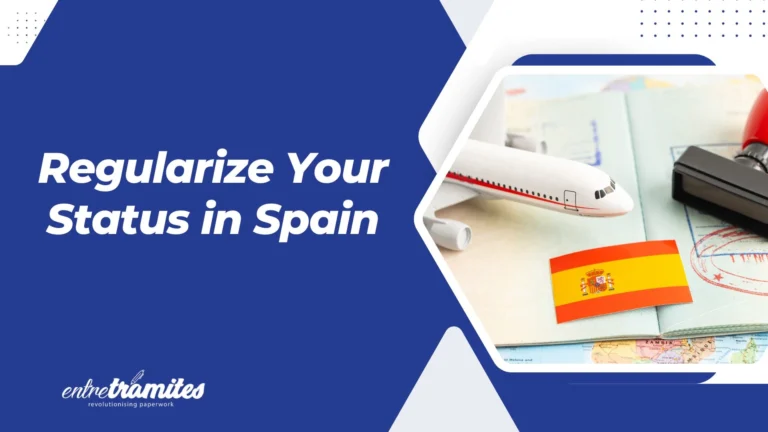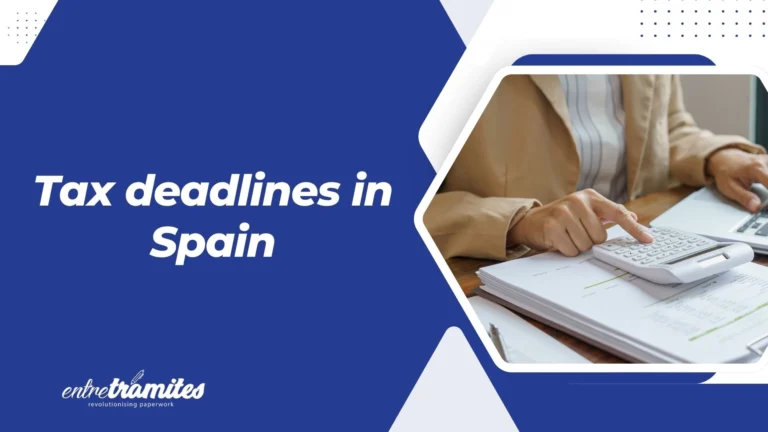What is Form 714?
The Wealth Tax or Form 714 taxes the net worth of the taxpayer, that is, the value of all assets and rights of economic content that the individual has at the time of accrual of the tax. For this calculation, it is necessary to take into account the deductions for charges and levies that may reduce its value, as well as the debts or personal obligations for which they are liable.
The Wealth Tax is applied throughout the national territory, without prejudice to the foral tax regime Agreements and the Economic Agreements in force of the Historical Territories of the Basque Country and the Foral Community of Navarre. The income from this tax is assigned in its entirety to the Autonomous Communities.
Taxpayers of the Wealth Tax
There are two types of taxpayers of the Wealth Tax:
- Taxpayers subject to personal liability: Taxpayers subject to personal liability: taxpayers must declare all the assets and rights of economic content that they own as of December 31, regardless of where the assets are located or where the rights can be exerted. These taxpayers are:
- Natural persons who have their habitual residence in Spanish territory.
- Natural persons of Spanish nationality, as well as their spouses not legally separated and minor children, who had their habitual residence abroad due to their status as members of Spanish diplomatic missions, members of Spanish consular offices, office holders or official employment of the Spanish State as members of delegations and permanent representations accredited to international organizations, active civil servants who carry out an official position or employment abroad that is not of a diplomatic or of a consular nature.
- Taxpayers subject to real liability: these taxpayers must declare, exclusively, the assets and rights that they own as of December 31, when they were located, could be exerted or had to be fulfilled in Spanish territory. These taxpayers are:
- Natural persons who do not have their habitual residence in Spain and are holders of assets or rights that are located, can be exercised or have to be fulfilled in Spanish territory.
- Individuals who have acquired their tax residence in Spain as a result of moving to Spanish territory for work reasons and who have chosen to pay the Non-Resident Income Tax.
Who is required to present Form 714?
The taxpayers, whether due to personal or real liability in which any of the following circumstances occur, are required to submit Form 714 are:
- The resulting tax quota according to the regulations of this Form 714 is to be paid (with the deductions or allowances already applied).
- For the purposes of the first limit for your tax obligation, it must be taken into account whether the determined tax base is equal to or less than the established minimum exemption, generally 700,000 euros, or the aforementioned exemption approved by the Autonomous Communities for their residents.
- When the aforementioned situations do not occur, the determined value of their assets and rights, whether or not they are exempt, without taking into account charges, levies, debts, and personal liabilities, is greater than 2,000,000 euros.
People who died during the 2021 financial year did not have the obligation to declare this tax.
The value of your assets or rights is greater than 2,000,000 euros
For the purposes of applying this limit, all the assets and rights of the taxpayer must be taken into account, whether or not they are exempt from tax, computed without considering the charges and levies that reduce their value, nor the debts or personal liabilities for which the taxpayer is responsible.
In the case of non-residents who pay this tax, by real liability, they will only take into account the value of the assets and rights of which they are the owner and which are located, which could be exerted or fulfilled in Spanish territory.
The tax quota for this tax is payable
Even if the total value of your assets or rights is less than 2,000,000 euros, you will have to file a Wealth Tax return if the resulting tax liability is payable.
This will occur when the taxable base, i.e., the value of the taxpayer’s net worth, is higher than the minimum exempt amount:
The habitual residence is exempt, with a maximum amount of 300,000 euros.
- In general: 700,000 euros
- In Aragon: 400,000 euros
- In Catalonia: 500,000 euros
- In Extremadura: 500,000 euros in general, 600,000 euros with a degree of disability equal to or greater than 33%; 700,000 euros with a degree of disability equal to or greater than 50%; and 800,000 euros with a degree of disability equal to or greater than 65%.
- In the Valencian Community: 600,000 euros in general and 1,000,000 euros with a degree of mental disability equal to or greater than 33%, or with a degree of physical or sensory disability equal to or greater than 65%.
In addition, in the Community of Madrid, there is a 100% discount on the Wealth Tax quota, so only those who have assets of more than 2,000,000 euros will have to present this declaration, although without income.
How is the Wealth Tax calculated?
Form 714 includes all your assets and rights, but, the rule excludes some assets that could prevent you from being obliged to present them.
- The habitual residence up to a maximum value of 300,000 euros, that is, if your permanent residence has a value of 500,000 euros, you would only contribute 200,000 euros to the tax base.
- Some investments such as pension plans, PPAs, business plans, and joint insurance contracts are also not included in the tax base of model 714.
- The assets and rights that make up your business assets and constitute your main source of income are included.
- Certain works of art and antiques included in article 4.3 of Law 19/91 must also be included, although there are also some exempt quantities.
Basically, if your assets exceed 700,000 euros without counting your habitual residence, you just have to do a simulation and subtract your assets from the elements that we have just indicated.
The resulting amount to pay will depend on each region since each autonomous community applies its own regional scale or in some, it is subsidized, as is the case of the Community of Madrid.
How to fill in Form 714?
Form 714 is made up of 10 sections and the entry document:
Section 1 – General information: identification data of the taxpayer, year, special type of taxation, economic regime of marriage, Autonomous Community of residence, complementary declaration, and if it is processed by the interested party or their representative.
From Section 2 to 8 – Assets, rights, and debts: each of the elements that make up their net worth is indicated, indicating its nature, its exemption, and affectation to their economic activity, current account deposits, representative values of transfer of capital to third parties, etc.
Sections 9 and 10: Summary of the net worth that comprises the taxable income (this part is filled in automatically when including the items in the previous sections according to their classification).
Finally, you generate the payment document, in which you have to indicate the payment method (direct debit or payment on account) and the account number where the payment is to be made.
Do not forget that Form 714 must be submitted online for any taxpayer who is required to do so, so it will be necessary to have an identification system (such as a Digital Certificate) installed on your computer or request the service from a tax advisor.
Any doubts?
As you can see, completing Form 714 is easier than it seems, but doing it on your own will consume valuable time that you could dedicate to your business. If you need any type of advice and procedures for SMEs or Self-Employed, you can contact us. It is always good to leave tax issues in the hands of specialists.





